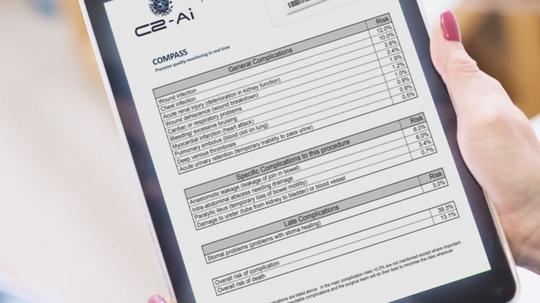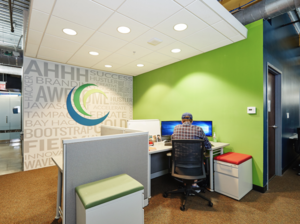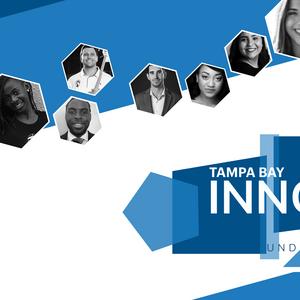
The coronavirus pandemic has demonstrated just how fragile the health care system can be. Copeland Clinical AI (C2-Ai), a company with headquarters in the United Kingdom and an office in St. Petersburg, wants to help hospitals better handle their patient loads by using a machine learning platform to identify patients at greatest risk of contracting preventable conditions, so hospitals can keep beds open for those in urgent need.
“The basic things hospitals are trying to do is save lives, make people better and not make them worse,” said Richard Jones, president of C2-Ai, which he said has about 10 fulltime employees. “We develop applications that in simple terms, help hospitals improve.”
The coronavirus pandemic has presented a number of new challenges for the health care system. As the outbreak spread earlier this year, hospitals postponed elective surgical procedures to limit the spread of the virus and make sure there was sufficient space for Covid-19 patients who required an ICU bed. As beds begin to free up, hospitals have to decide which patients and surgical procedures to prioritize.
CS-Ai’s platform COMPASS assesses patients based on their surgical operation and physiology to calculate a risk of mortality and help determine if that patient might benefit from a particular treatment prior to going in for surgery. The end result is an insight into “objective priority scoring,” said Jones.
“If we’re trying to save lives, we need objective priority scoring,” he said. “To score patients, we look at individuals, the operation they’re having and physiology to calculate their risk of death and complications. Our systems can assess individual patients or the complete surgical list and identify who should be operated on first, second, third and so on.”
COMPASS helps hospitals address two preventable conditions that patients sometimes get while in the hospital: acute kidney injury and hospital acquired pneumonia. Both of these conditions can cause patients to occupy beds for an additional six to eight days respectively, said Jones. COMPASS helps hospitals recognize who is at greater risk of acquiring these conditions, according to Jones, so that they can hopefully be avoided.
“The app distills the essence of the patient safety system into the point-of-care application that can help understaffed teams assess and prevent avoidable conditions in patients,” he said.
The app optimizes its approach using machine learning algorithms to reflect current conditions with patients, he added. For example, Covid-19 wasn’t a concern a year ago, but the app now takes the disease into account when making its recommendations.
Since COMPASS helps hospitals prioritize which patients need priority care, the question might arise, “Why not treat everyone with a maximum level of care?”
According to Jones, “The optimum way to do this is to identify the people with high, medium and low levels of care. It’s important that the extra work is going where it’s needed.” With COMPASS, he said, nurses and physicians can spend a little bit of extra time with a patient at the beginning in order to mitigate risk later on.









